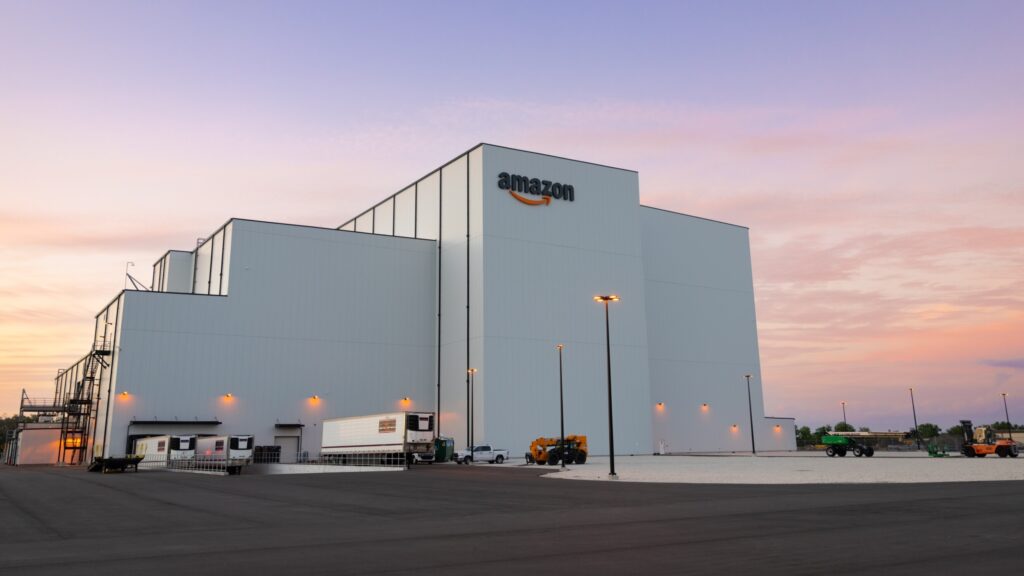In an era where digital connectivity is as vital as electricity and clean water, Amazon is boldly stepping into the satellite internet arena with Project Kuiper’s Florida hub. Located at NASA’s iconic Kennedy Space Center, this newly launched 100,000 square foot payload processing facility is the heart of Amazon’s mission to bridge the digital divide. The hub is more than just a building it’s a symbol of innovation, ambition, and a promise to bring reliable internet to the remotest parts of the world.
What Is Project Kuiper?
Amazon’s Project Kuiper is a massive initiative aimed at deploying a constellation of over 3,200 low Earth orbit (LEO) satellites. The goal? Deliver high speed, low latency internet access to underserved and unserved regions across the globe. The Florida facility plays a critical role in this vision, serving as the final stop before Kuiper satellites are launched into space.
According to Steve Metayer, VP of Kuiper Production Operations, The Florida hub represents years of design, testing, and refinement. It’s not just about sending satellites into space it’s about doing it at scale, safely, and with precision.
Purpose Built for Efficiency
The Project Kuiper’s Florida hub is strategically designed for efficiency. Equipped with clean rooms, satellite testing chambers, and automated payload handling systems, the facility ensures that each satellite is rigorously checked before launch. Its proximity to major launch pads at Cape Canaveral reduces logistical challenges and speeds up deployment timelines.
In a case study published by Amazon’s internal team, the facility was shown to reduce satellite integration time by 40%, a significant advantage in the competitive satellite internet market.
Human Expertise Driving Robotic Precision
While automation plays a key role, it’s human ingenuity that powers the hub. Engineers and technicians, many of whom are veterans from NASA and SpaceX, meticulously monitor every stage of satellite preparation. Sarah Johnson, a systems engineer at the hub, shared her experience.
Every satellite we send up could change lives. Knowing that rural kids will be able to attend virtual classrooms because of our work makes every second worth it.
Connecting the Unconnected
As of 2025, nearly 2.6 billion people still lack reliable internet. The impact is far reaching students are cut off from online education, farmers can’t access weather forecasts, and remote clinics struggle to communicate with central hospitals. Project Kuiper’s Florida hub is a direct response to this crisis.
Dr. Angela Kerr, a digital inclusion expert at the World Bank, explains, Projects like Kuiper represent a turning point. Satellite internet isn’t just about speed it’s about justice, equity, and economic opportunity.
Real World Testing and Deployment
Amazon has already launched its first two prototype satellites, KuiperSat-1 and KuiperSat-2, and the results have been promising. The Florida hub is now gearing up for mass satellite processing as Amazon prepares for full scale launches. By late 2026, the company aims to offer beta services to selected customers in the U.S. and abroad.
A pilot project in rural Montana tested early prototypes and saw internet speeds increase by over 500%, with latency rivaling fiber connections. One local teacher, Mark Ellis, shared, Our students could finally stream lessons without buffering. For the first time, online exams didn’t fail mid test. It’s a game changer.
Amazon’s Competitive Edge in the Satellite Race
Amazon enters a market dominated by SpaceX’s Starlink, OneWeb, and several state-backed players. Yet, Project Kuiper’s Florida hub gives it a unique edge. The facility is designed not just for today but for tomorrow scalable, modular, and integrated with Amazon’s supply chain and cloud services like AWS Ground Station.
According to space policy analyst Dr. Kevin Hanley, While others focused on rapid deployment, Amazon focused on infrastructure and sustainability. The Florida hub is proof they’re in it for the long haul.
Despite its promise, Project Kuiper isn’t without hurdles. Regulatory approval, spectrum allocation battles, and launch bottlenecks remain real risks. Furthermore, the environmental impact of mass satellite launches and space debris is under increasing scrutiny.
Amazon, however, has pledged transparency. They’ve adopted sustainable fuel partnerships, reusable launch systems, and end of life satellite deorbiting protocols all coordinated through Project Kuiper’s Florida hub.
A Future Forged in Florida
The launch of Project Kuiper’s Florida hub is not just a technical milestone it’s a human one. It represents the hopes of billions who deserve to be part of the global digital conversation. By marrying cutting edge technology with real world empathy, Amazon is not just launching satellites it’s launching possibilities.
As Project Kuiper progresses, the world will watch closely. If the Florida hub delivers on its promise, we may finally see a future where connectivity isn’t a privilege it’s a right.
Project Kuiper’s Florida hub isn’t just a facility it’s a mission control for hope. By empowering engineers, uplifting communities, and redefining global connectivity, Amazon’s bet on satellite internet could transform the digital landscape forever.

